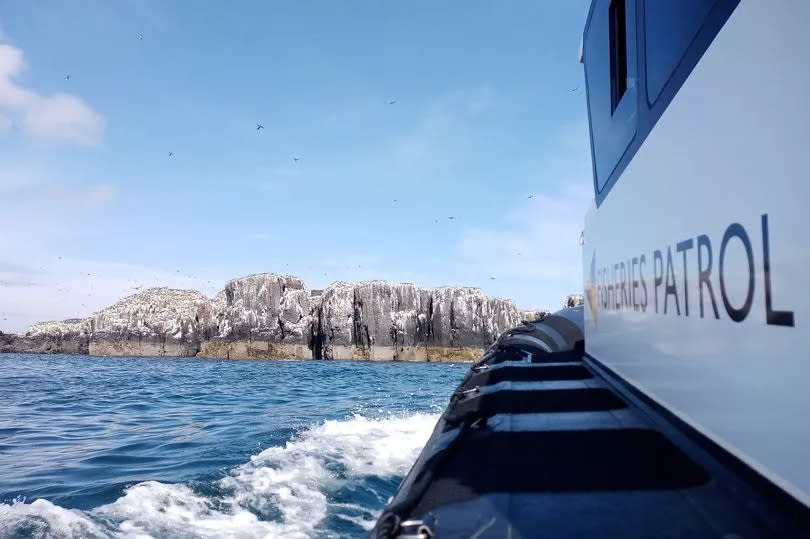Holy Island fisherman fined for retaining protected egg bearing lobsters

A commercial fisherman from Holy Island has been fined after being found guilty of retaining egg bearing lobsters.
Mr Paul Douglas appeared in court two charges which breach national fisheries legislation aimed at protecting key species along the Northumberland Coast on Friday, May 10. The court heard that Douglas had fished and retained two berried lobsters on two occasions.
Douglas, the owner/skipper of the commercial fishing vessel Scarlet Cord R7, was found to have had prohibited egg bearing lobsters in his catch on November 16 2023, and again on January 16, 2024. Tests later performed on one of the lobsters showed that although there was only a limited number of eggs present, the remainder that would have been attached had not naturally hatched.
Read more: Judge deems Sycamore Gap case 'too serious' for magistrates' court
Keep up to date with all the latest local news from Northumberland with our free newsletter
Both offences are in contravention of the Lobster and Crawfish (Prohibition of Fishing and Landing) Order 2000 and the Sea Fish Conservation Act 1967. Douglas pleaded guilty to both offences and was issued with a Band D fine of £960 and ordered to pay a victim surcharge of £384, along with prosecution costs of £1,350.
The case was brought against Mr Douglas by the Northumberland Inshore Fisheries and Conservation Authority (NIFCA), who manage the inshore fishery along the Northumberland and North Tyneside coastline.
Nick Weir, lead enforcement officer for NIFCA, said the authority was pleased that the court recognised the importance of enforcing conservation measures. He said: "The shellfish fishery is vital for Fishers in the district and allowing lobsters to breed successfully helps to ensure stocks can be maintained.
"Fishing in Northumberland is an economically sensitive activity and of great social importance to our local heritage and character. Our byelaws in conjunction with national legislation, balance the social, environmental, and economic needs of our stakeholders to promote healthy seas, sustainable fishing, and a viable industry."

 Yahoo News
Yahoo News 
